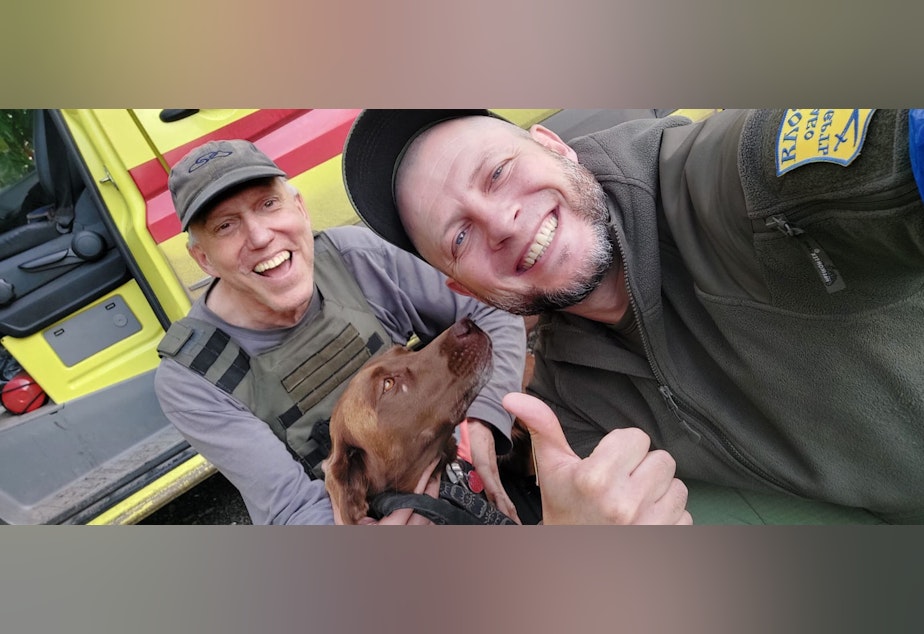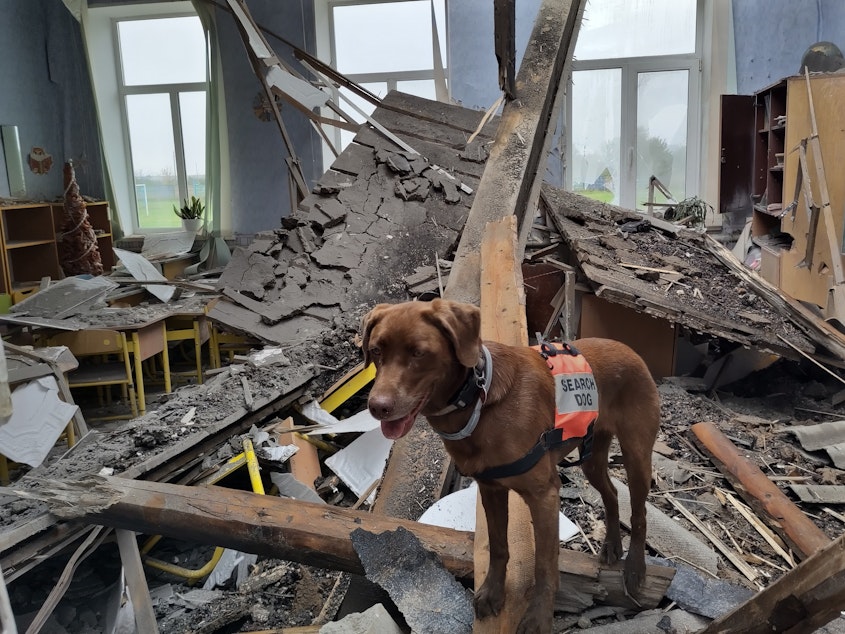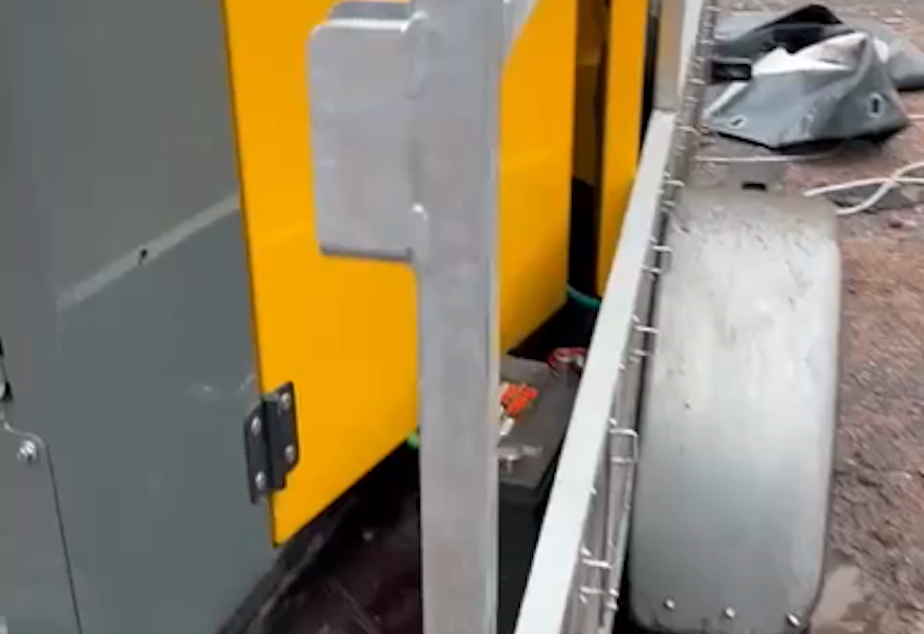From unexpected invasion to unyielding resolve, Seattleite documents a year of war in Ukraine

On Feb. 23, 2022, Ukrainians went to bed in a country on the brink.
For months, Russian military forces were stationed near the border, encircling Ukraine on three sides.
The U.S. intelligence community told the world to brace for an invasion. But many observers questioned if war was in Vladimir Putin’s plans.
The worst-case scenario was confirmed the next morning, when Putin announced a "special military operation."
Soundside host Libby Denkmann caught up with David Tagliani, a Seattleite volunteering on the ground in Ukraine with the aid organization Stay Safe UA. Lately his work involves bringing internet access to civilians affected by the war.
We first spoke to Tagliani in January when he was home in Queen Anne for a holiday break. He’s been back in Ukraine for a little over a month.
Sponsored
Tagliani is currently stationed at a house in the outskirts of Sloviansk, a city in the eastern Donetsk region.

It’s about 20 miles West of Bakhmut — the site of a months-long brutal Russian siege. Ukrainian President Volodymr Zelenskyy said in December that Bakhmut had been reduced to “burned ruins” by constant shelling.
But so far, the Ukrainian opposition has been able to hold Russian forces back.
Sponsored
"There have been artillery attacks even here in Sloviansk a couple times a day," Tagliani said. "It’s kind of a constant thing. It's sort of like thunder in the background. You hear this rumbling going on and you just kind of get used to it. That’s happening right now as a matter of fact."
The Russian invasion
Tagliani recalled the early days of the invasion, when Stay Safe UA was formed to help refugees crossing the border into Poland.
"Hundreds of thousands of refugees were pouring out of Ukraine into Poland at that time, and it was very cold. A lot of people were getting hypothermia," Tagliani said. " When I got here, we were providing food and medical care. I'm an EMT. So that's was our function was to try to treat injuries, hypothermia, do what we could to facilitate refugees moving over the border."
Tagliani said that at that time, border guards were basically "shoving" people through as fast as they could move, and were barely checking documents.
Sponsored
"It was a probably five or 10 people wide line that was probably more than a mile long of people trying to get across the border. At that point in, you know, six inches, eight inches of snow," Tagliani said.
Almost a year later, life for Ukrainians in the eastern Donetsk region has become compartmentalized, Tagliani said.
"People still have to live their lives, you know, this disaster is happening, but you still have to get your kids to school and go to the store and, and go shopping and get your food for the day," he explained.
Now, Tagliani's work is focused on bringing internet access and setting up generators at "unbreakable points," gathering locations where people can come to get a cup of tea, a meal, or warm up with a wood burning stove.

 1 min
Stay Safe UA delivers a generator to an "Unbreakable point" in Slobyansk, Ukraine.
1 min
Stay Safe UA delivers a generator to an "Unbreakable point" in Slobyansk, Ukraine.
Sponsored
"Because there's no electricity, there's no running water, there's no power, no gas," Tagliani said. "So people are living in their apartments, day to day, it's dark, they may have to heat their food out in the courtyard of their apartment. But generally speaking, people are not interacting a lot."
The fight for Bakhmut
While Russian forces were able to claim control of the southern city of Kherson and claim a large portion of Ukraine's Zaporizhzia region in the early says of the conflict, Ukraine has been able to take back portions of the territory that Russia initially captured in the early weeks and months of the war.
It's impossible to exactly know where this war is going. But Tagliani remains optimistic.
"If you'd asked me two weeks ago, I probably would have said that Bakhmut can only hold out for another couple of weeks. I mean, the Russians were encircling it on three sides," he said.
Sponsored
But Ukrainians have an amazing will to fight and have been able to push Russian forces back.
"So my feeling now is that Bakhmut is going to be a stalemate," Tagliani said.

One year into this war, Tagliani says many Ukrainians won't be satisfied with returning to life the way it was the day before the invasion. Instead, Ukrainian forces, which are mostly made up of millennials born after the fall of the Soviet Union, are fighting to preserve the country as they knew it in 2014, before Putin annexed Crimea.
"I think that they've been very clear since the very beginning that this is not a question of February 24," Tagliani said. "This is a question of 2014, when the Donbass and Crimea were taken originally. And the argument is that if the West had taken action, then we would not be in the situation that we're in now. And settling for some sort of compromise would end up only encouraging Russia to continue to be aggressive to continue to take more land."
Listen to the full interview above.


